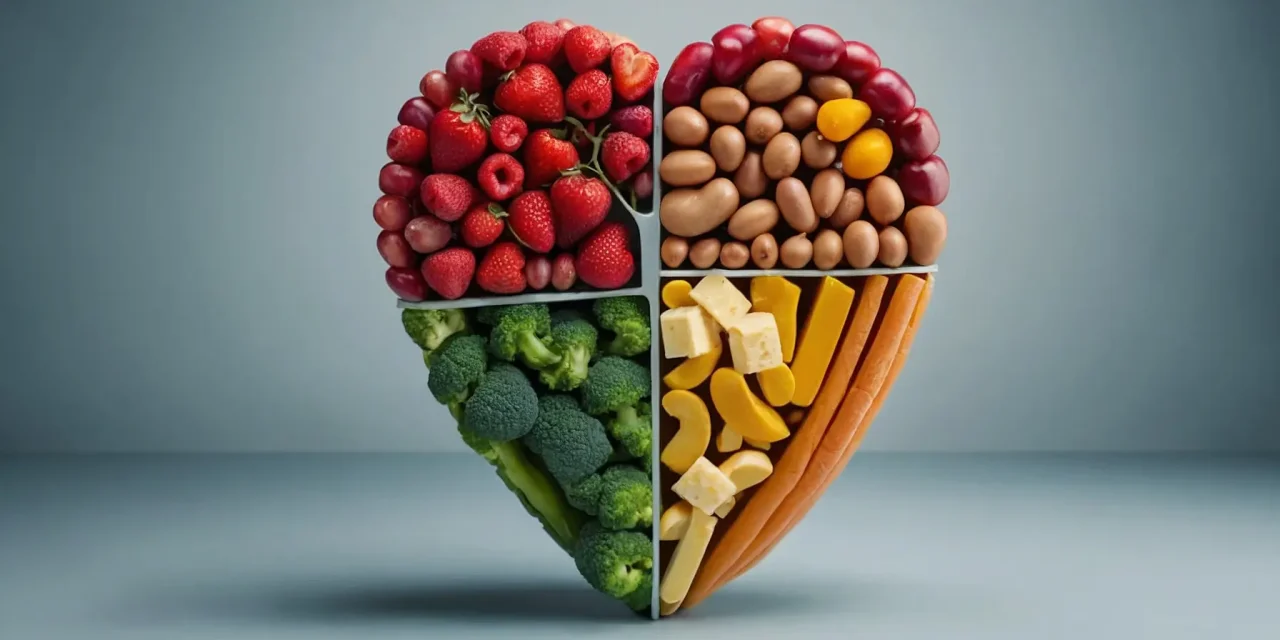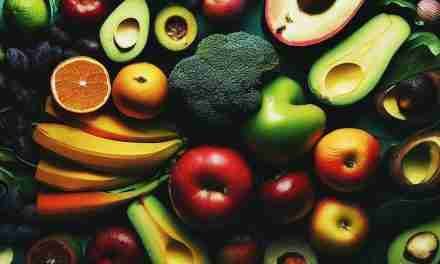Combat calcium plaque in arteries to boost your cardiovascular health 🥦🏃♂️.
In the arteries is a significant health concern that can lead to various problems, ranging from fatigue and shortness of breath to more severe conditions like stroke or heart attack. These plaques form due to damage to the artery walls, prompting the body to initiate a repair process.
If this damage isn’t adequately repaired, a stable plaque may form, which can potentially cause a heart attack if it ruptures or triggers clot formation. Calcium plaques are often deposited alongside these, making them more stable yet increasingly dangerous if they rupture.
Lifestyle factors, such as smoking or consuming unhealthy foods, contribute to this buildup. However, specific vitamins can significantly improve the situation.
Today’s post will explore these beneficial vitamins, including food sources to help you obtain them naturally, and offer tips to maximize their health advantages. 🫀
6. Magnesium
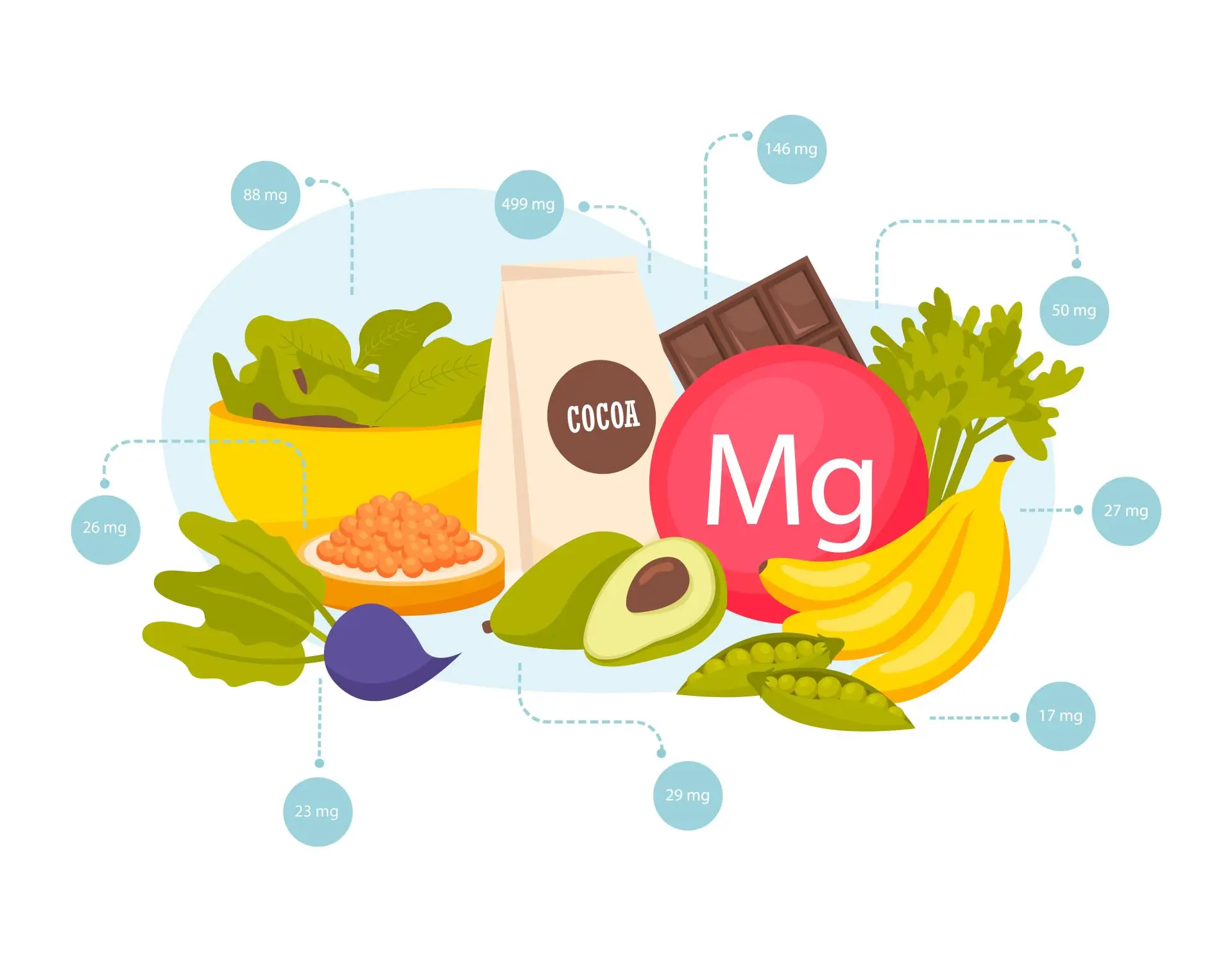
Magnesium is an essential mineral that is vital in various bodily functions, including muscle and nerve function, blood pressure regulation, and bone health.
Recent studies have shown that magnesium is essential in preventing plaque buildup. One study published in the Journal of the American College of Cardiology found that higher magnesium intake was associated with reduced markers of plaque buildup in the arteries.
The study reports that for every 50 milligrams of magnesium consumed, there was a 22% reduction in coronary artery calcification. Magnesium helps to relax muscle spasms in the heart’s blood vessels, which can be responsible for high blood pressure. What’s more, magnesium is involved in over 300 enzymatic reactions in the body, and it is the fourth most abundant mineral in the body.
Magnesium deficiency is relatively common, with some estimates suggesting that around 48% of adults in the United States do not meet the recommended daily intake.
Good food sources of magnesium include nuts, seeds, avocados, legumes, leafy green vegetables, and fatty fish like salmon. So make sure you’re getting plenty of these to keep your arteries and heart happy. 😀
5. Vitamin E
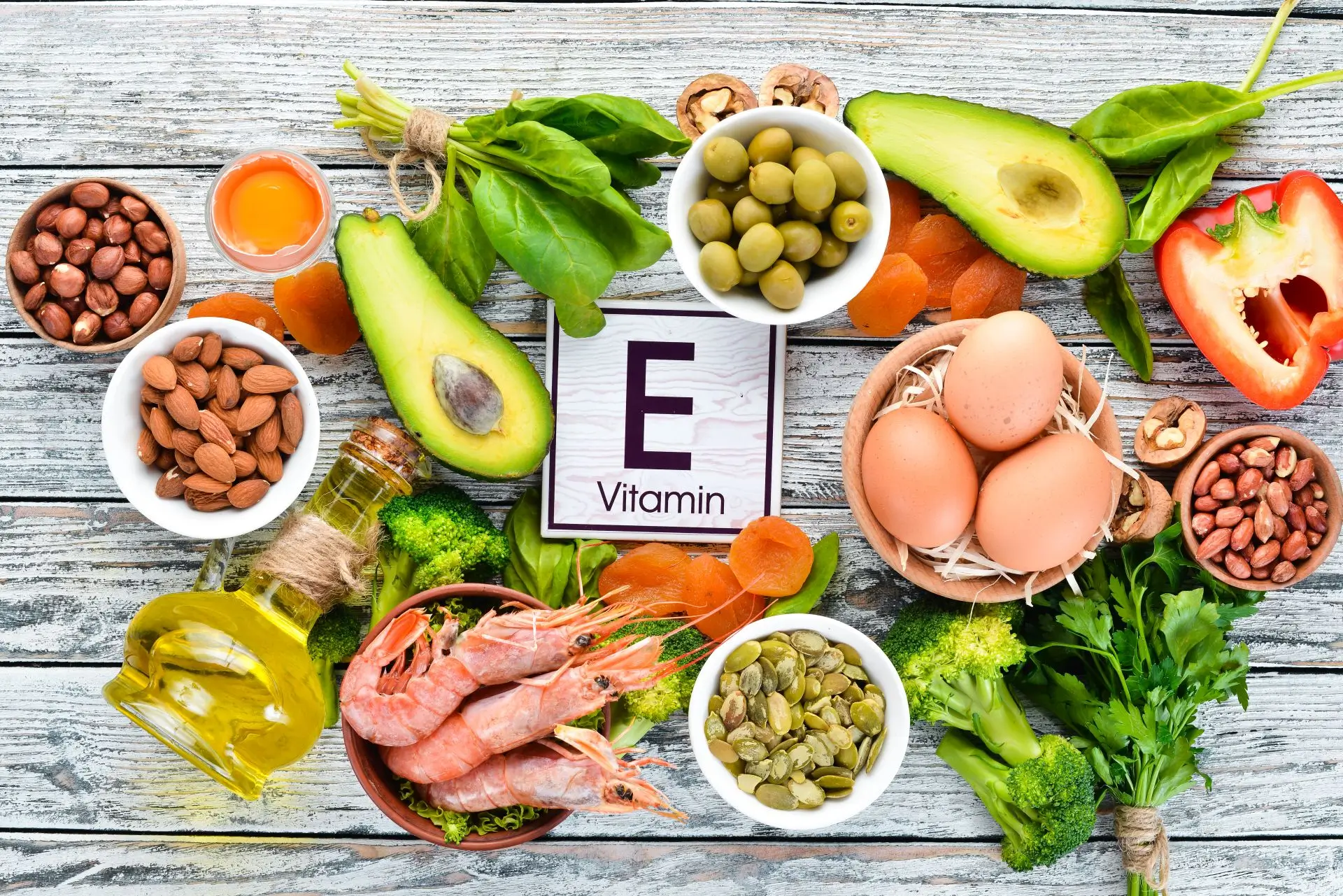
This is a fat-soluble vitamin that is known for its antioxidant properties. Recent studies have shown that vitamin E may also play a role in reducing calcium plaque in the heart and arteries.
One study published in the International Journal of Molecular Science found that vitamin E supplementation may improve endothelial function, which is a key factor in the development of atherosclerosis.
Vitamin E prevents the oxidation of low-density lipoprotein or LDL cholesterol. When LDL cholesterol is oxidized, it can lead to the formation of calcium plaque in the arteries.
Vitamin E helps prevent this oxidation, which in turn may help reduce calcium plaque buildup. It’s also important for protecting your vision, skin health, and cognitive brain function as you age.
Vitamin E can be found in various foods, including nuts and seeds, leafy greens, fruits, and vegetables. Particularly rich sources include almonds, avocados, red peppers, spinach, beets, greens, pumpkin, asparagus, and mangoes.
These are some of the most abundant vitamin E foods. However, the fact is that this vitamin is present in many plant-based foods. So, unlike some of our other vitamins, you don’t need to worry too much about vitamin E deficiency as long as you eat a healthy and balanced diet with plenty of plant-based foods.
4. B vitamins
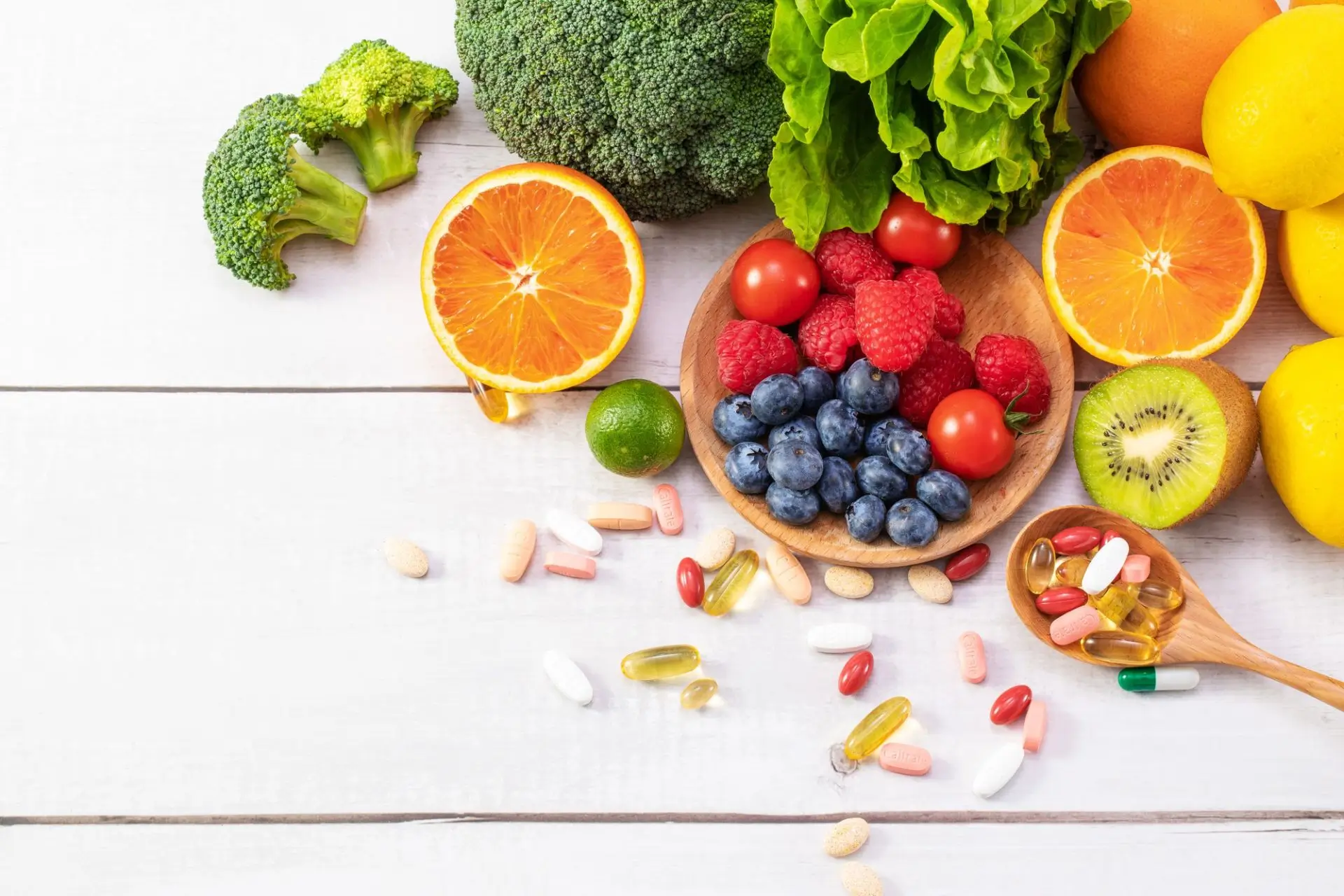
These are a group of water-soluble vitamins that play important roles in various bodily functions, including energy metabolism, nerve function, and the formation of red blood cells. In particular, vitamin B6, vitamin B12, and Folate have been shown to be extremely important for heart health and that’s all because of a problematic amino acid called homocysteine.
Studies show that high levels of homocysteine are associated with an increased risk of heart disease. Vitamin B6, vitamin B12, and folic acid work together to break down homocysteine in the body, thereby reducing the risk of heart disease.
Additionally, vitamin B1 has also been shown to repair blood vessel function and slow the development of artery damage that causes calcification.
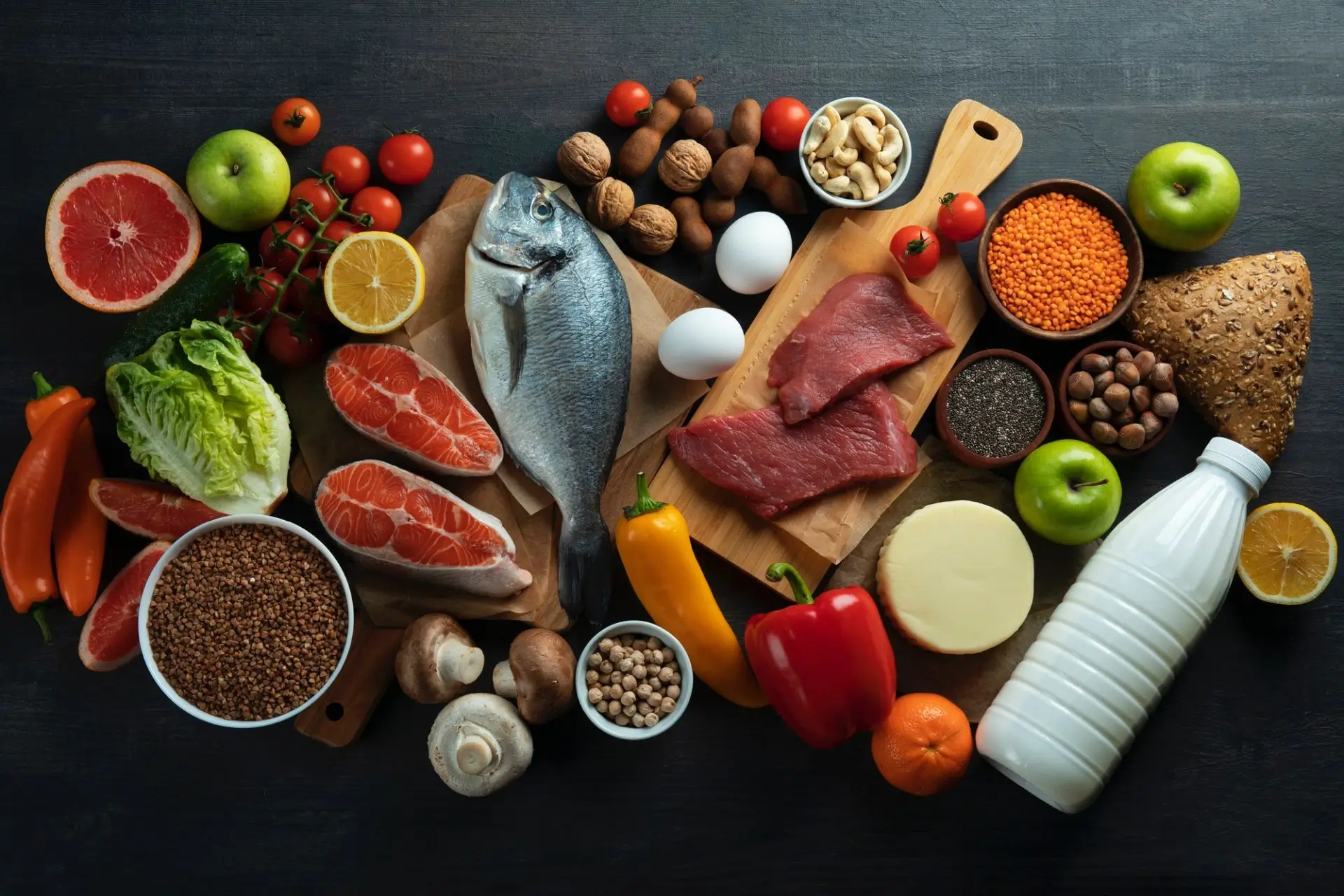
Food sources of B vitamins include meat, fish, poultry, eggs, dairy products, leafy green vegetables, and fortified greens. Vitamin B12 is mainly found in animal products, meaning that fruits and vegetables don’t contain any. So vegetarians and vegans may need to supplement their diet with vitamin B12 or eat B12-fortified plants, milk, and cereals.
Although there is one super-nutritious non-animal food that naturally contains B12, can you guess what it is? It’s not a plant, vegetable, fruit, or nut. It’s a fungus.
That’s right, some varieties of mushrooms contain B12, making them an excellent staple food for vegetarians.
3. Potassium
Potassium plays a critical role in maintaining fluid balance within cells as well as the proper functioning of muscles and nerves. It’s important for healthy muscle contraction, including the heart muscle.
Research has shown that an adequate potassium intake may also reduce the risk of heart disease by helping to prevent calcium plaque buildup in the heart and arteries.
Potassium works by counteracting the effects of sodium, which can contribute to high blood pressure and the development of calcium plaque in the arteries. Additionally, potassium helps to relax blood vessels and improve endothelial function, which increases blood flow.
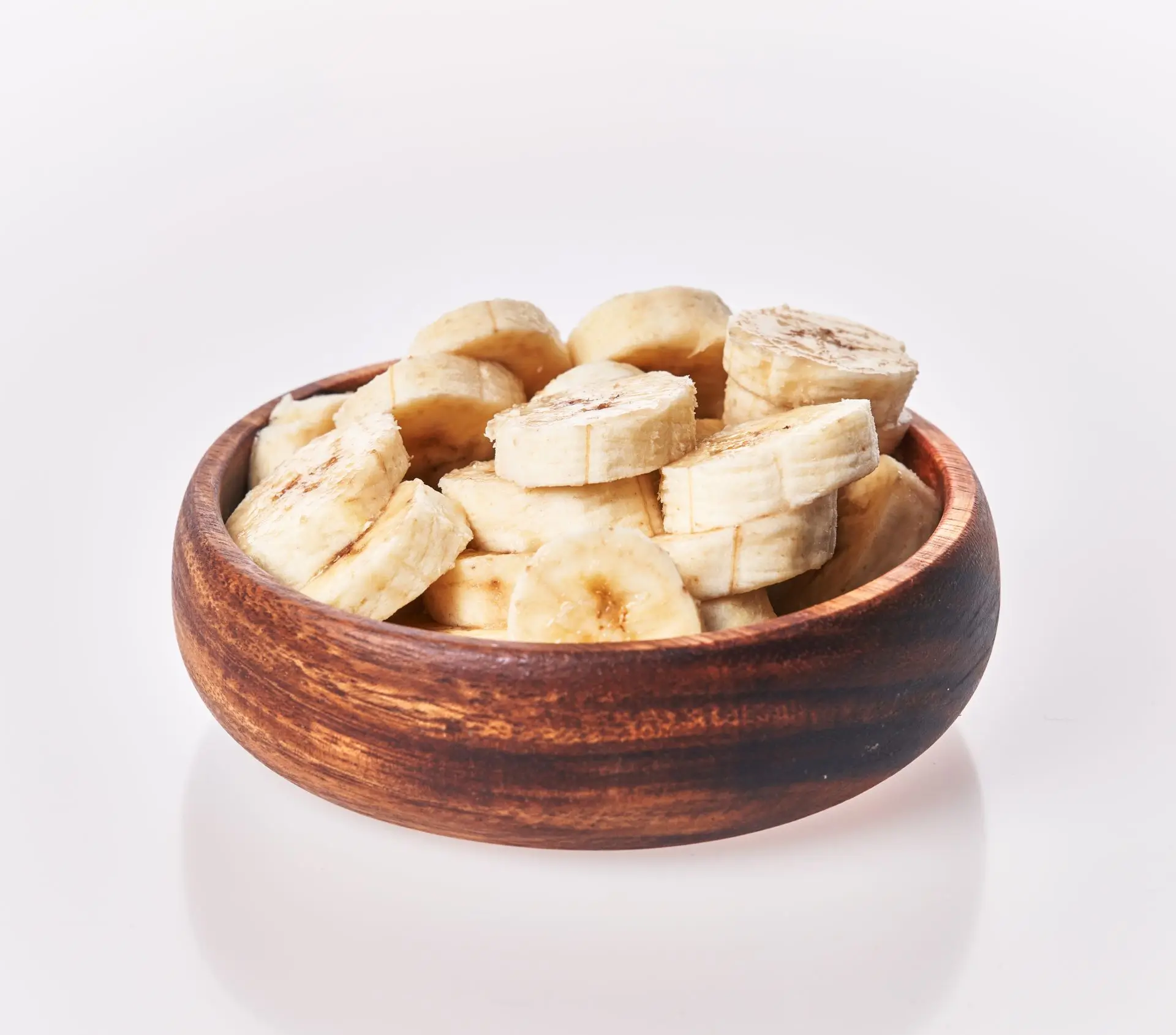
Don’t go bananas if you don’t like bananas! We’ve covered you with other potassium-packed options as we wouldn’t want you to lose your nutrient intake! 😉
Potassium sources include fruits, especially oranges, avocados, and cantaloupe; vegetables like spinach, broccoli, sweet potatoes, beets, and tomatoes; and beans, lentils, nuts, chicken, and salmon.
It’s worth noting that the potassium content of fruits and vegetables can decrease when you soak, steam, or cook them. So to increase potassium intake, include some raw or slightly cooked potassium in your regular diet.
TIP! 👍
Individuals with kidney disease or those taking certain medications, such as diuretics, may need to limit their potassium intake. Additionally, individuals with Addison’s disease or other adrenal gland disorders may need to consume extra potassium. As we discussed, soaking, steaming, and cooking have been shown to reduce potassium levels, so potassium-sensitive people are often recommended to take these steps.
Some of the foods we discussed in this section are the best for most health categories, so make foods like avocado, orange, and broccoli daily features in your diet.
2. Vitamin D
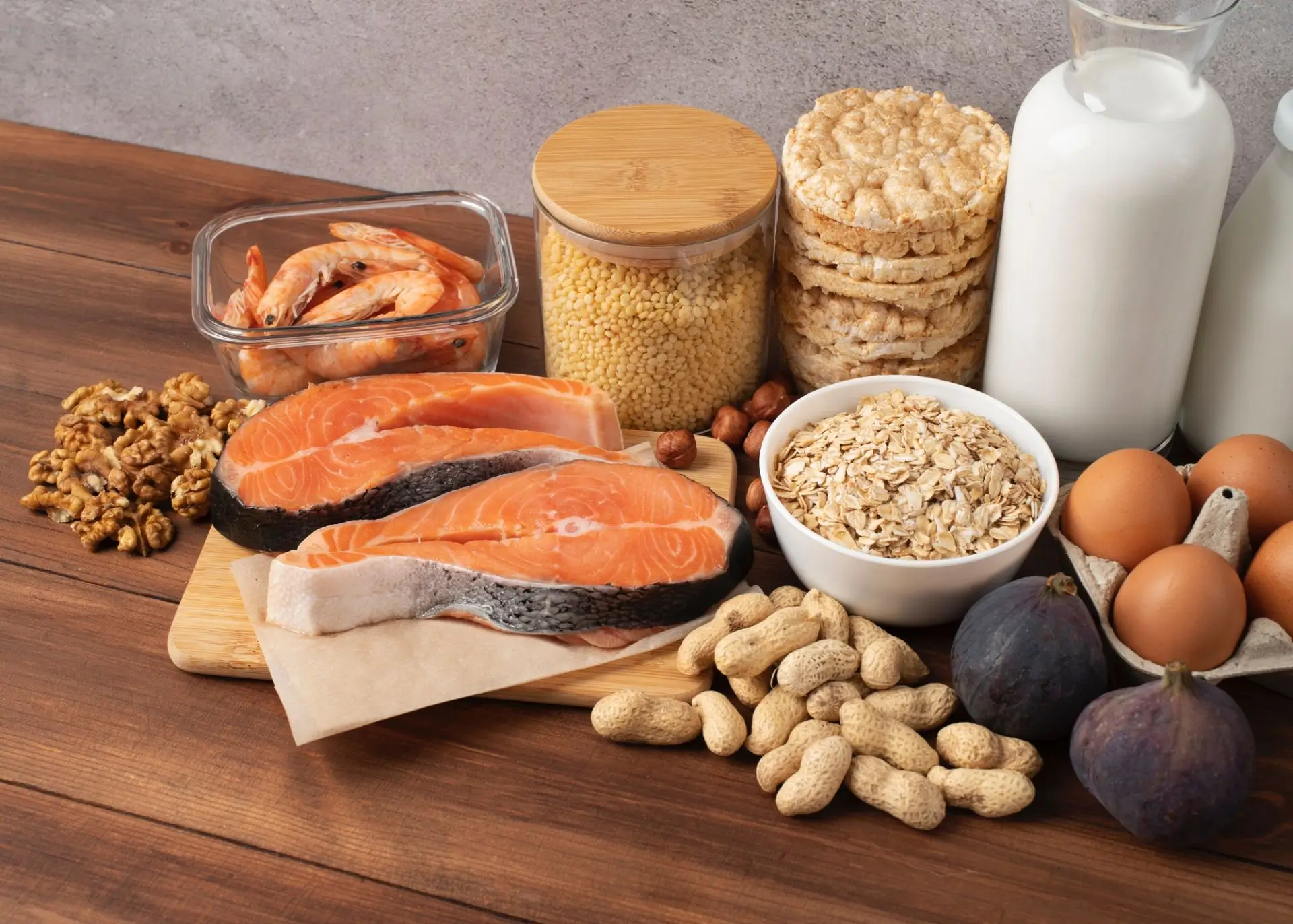
This bad boy over here plays a critical role in calcium, homeostasis, and bone health. It helps regulate the absorption of calcium and phosphorus in the gut and promotes their deposition in bones.
It’s like a traffic controller moving calcium out of harm’s way, where it can build up in the arteries and into the bones, where it’s needed to strengthen bones, preventing bone health problems like osteoporosis.
Vitamin D deficiency is strongly associated with an increased risk of arterial calcification, and it has important immunomodulatory and antiinflammatory effects, making vitamin D an essential vitamin for all-round health.
Sources of vitamin D are less common than other vitamins but include fatty fish such as salmon and tuna, fortified dairy products, and fortified cereals.
Of course, the most common way we get vitamin D is from the Sun because when we expose our skin to sunlight, our bodies naturally produce vitamin D.

Moreover, research published in the journal Photochemistry and Photobiology found that when the active compound in leafy greens, chlorophyll, is exposed to light through the skin, it improves the body’s ability to regenerate coenzyme Q10. This antioxidant is heavily linked to reducing heart disease, which our body produces less of as we age.
So, as you can see, vitamin D has a number of domino effects on different processes in the body. For all these reasons, many cardiologists recommend regular exposure to the sun for short periods, not enough to cause sunburn, but enough to allow your body to produce vitamin D.
Dr. Jack Wolfson recommends regular, moderate Sun exposure to the bare chest, and Dr. Michael Greger suggests it may be worth eating a salad and then getting some rays in order to not only reap the rewards of vitamin D but also promote the regeneration of heart-healthy coenzyme Q10 at the same time.
So eat your spinach, soak up some Sun, and enjoy the knowledge that vitamin D is making a huge difference in keeping everything working properly.
1. Vitamin K
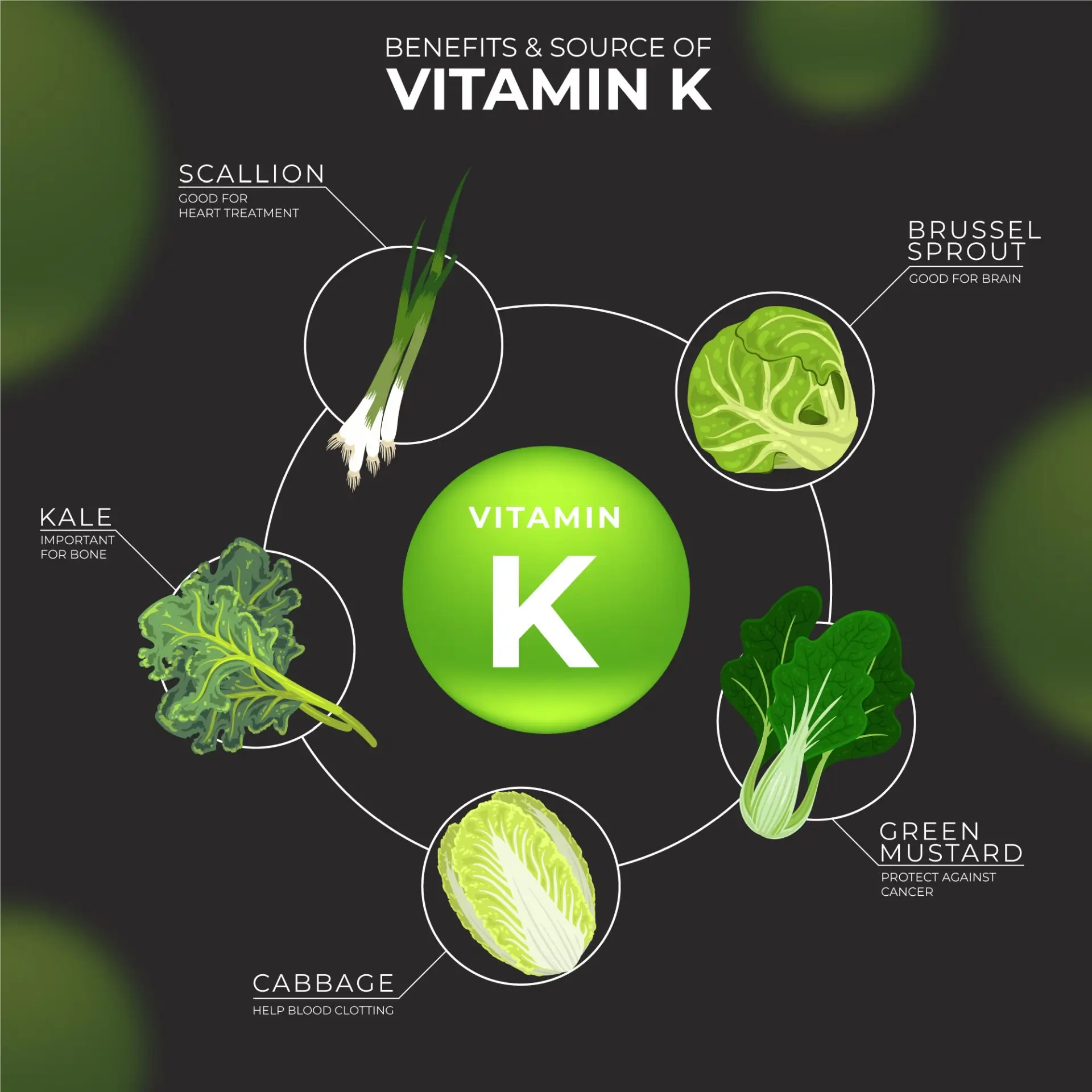
This vitamin is one of the most important vitamins for heart health as it’s known to reduce arterial stiffness, slow the progression of vascular calcification, lower the incidence of diabetes and coronary artery disease, and ultimately decrease cardiovascular mortality overall.
Like vitamin D, it plays a role in regulating calcium and promoting strong bones and healthy hearts and blood vessels. Vitamin K-dependent proteins such as matrix GLA protein, or MGP, help prevent calcium from depositing in the walls of arteries, where it can lead to plaque formation.
One study found that people who consumed high levels of vitamin K were 21% less likely to be hospitalized due to atherosclerosis or plaque buildup compared to those who consumed the least.
There are two main forms of vitamin K: K1 and K2:
- K-1, also known as phylloquinone, is found in green leafy vegetables like spinach, kale, broccoli, Brussels sprouts, and cabbage.
- K-2, also known as menaquinone, is found in fermented foods like cheese and natto, as well as in some meats and eggs.
While vitamin K is important for heart health, it’s also important to note that people taking certain medications, such as blood thinners like warfarin, need to be careful with their vitamin K intake as it can interfere with the medication’s effectiveness.
If that’s you, your healthcare provider will likely tell you to stay consistent with the amount of vitamin K food you eat and avoid large spikes.
Key Takeaways!
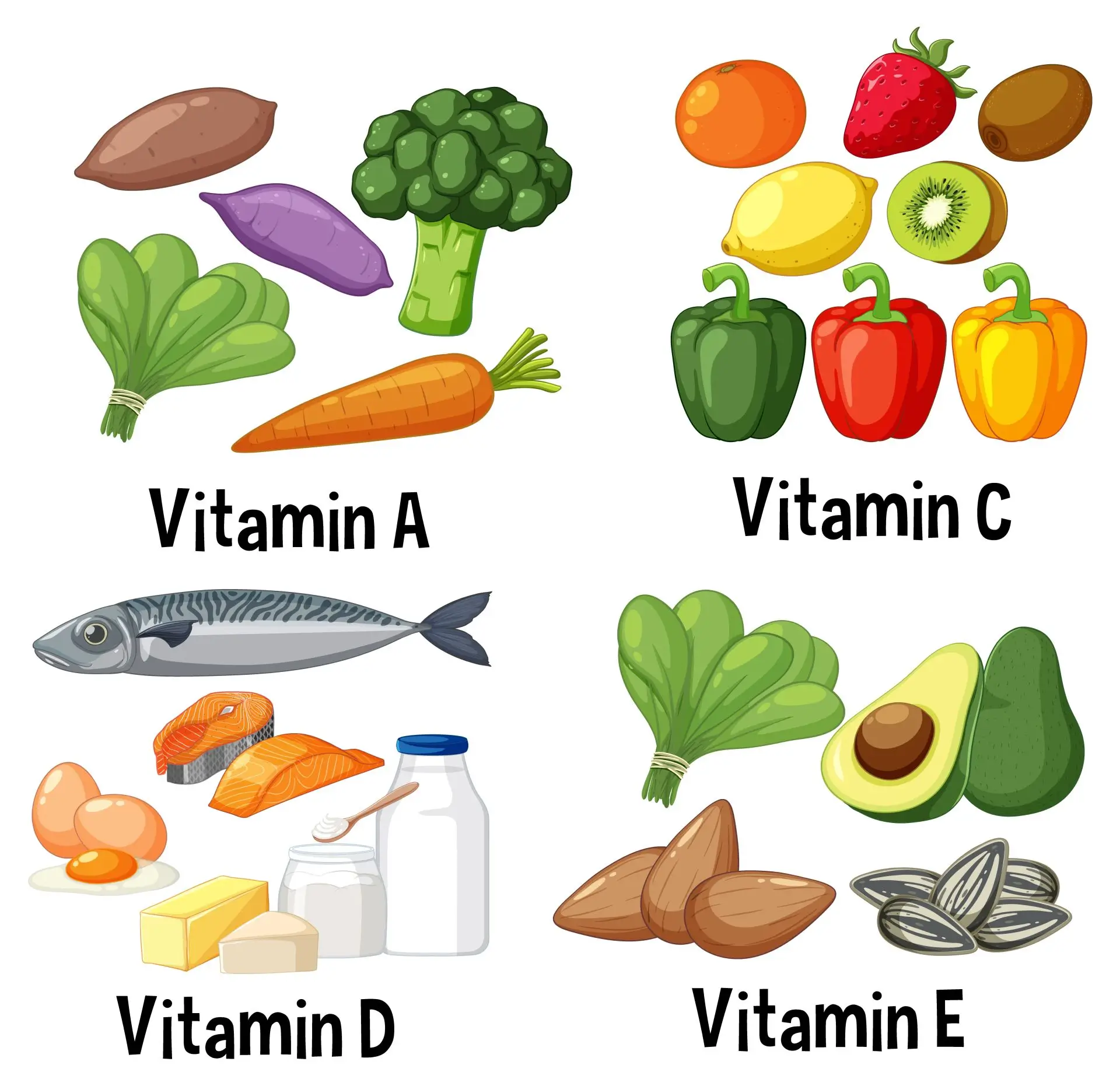
– Calcium plaque buildup in the arteries is a serious problem that can wreak havoc with health. This buildup is caused by lifestyle factors such as smoking or eating unhealthy foods. Certain vitamins can have a dramatic impact on improving the situation.
– Magnesium is an essential mineral that plays a vital role in various bodily functions. Studies have shown that magnesium plays an important role in preventing plaque buildup. Vitamin E may also play a role in reducing calcium plaque in the heart and arteries. Make sure you’re getting plenty of these to keep your arteries and heart happy.
– Vitamin K is one of the most important vitamins for heart health. Vitamin D plays a critical role in calcium, homeostasis and bone health. Coenzyme Q10 is an antioxidant linked to reducing heart disease. Make foods like avocado and broccoli daily features in your diet.

